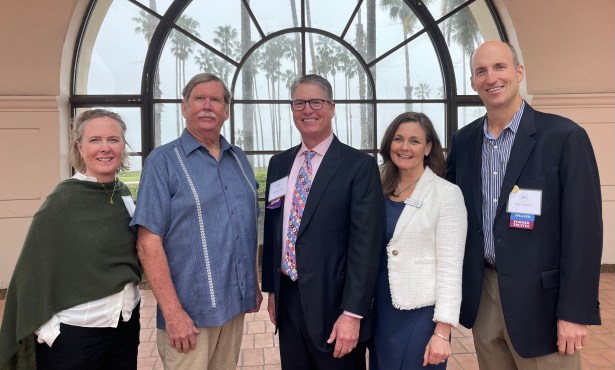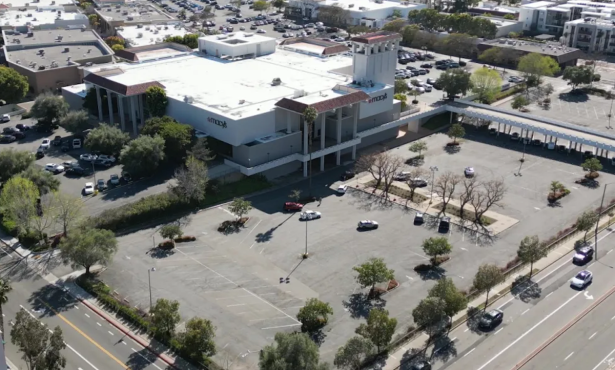It Takes a Village to Fund a County
“The avoidance of taxes is the only intellectual pursuit
that carries any reward.” —Economist John Maynard Keynes

For those Keynesian procrastinators who have put off paying
property tax until the last moment, December 10 is the deadline for
writing a check to the Santa Barbara County Tax Collector, sans
delinquency penalties. While most taxpayers view the obligation
with trepidation, Montecito resident Dan Eidelson finds levity in
the annual levy. For this former teacher, past Montecito Citizen of
the Year, and avid Internet researcher, the sight of the tax bill
brings renewed energy. For Eidelson, the tax tab means time to don
his celluloid cuffs and get up to his elbows in tax charts, graphs,
and reports from the county auditors office. (See the same reports
for yourself at www.co.santa-barbara.ca.us/auditor).
For Eidelson, the tax tab means time
to
don his celluloid cuffs and get up to his elbows in tax charts,
graphs, and reports from the county auditors office.
Dan takes on reviewing the County Tax
Assessment
and, just for fun, he separates out Montecito’s share.
What is his self-imposed task? Annually, Dan takes on reviewing
the County Tax Assessment and, just for fun, he separates out
Montecito’s share. Because Montecito is not a city (an idea nixed
by village voters nearly 15 years ago), tax payments from the area
are not isolated by the county auditor/assessor. Property taxes
collected from Montecito are blended with all the other
unincorporated portions of Santa Barbara County. Ten years ago,
when Dan was president of the Montecito Association, he determined
if he was to make a case for county service, he needed to know
Montecito’s tax contributions—and he found the results absorbing.
Annually, whoever owns taxable property become liable for property
tax based on the assessed value of the property. The assessed value
is often based on the purchase price of a property—and Montecito’s
got expensive dirt.
For example, the assessed value of Ty Warner’s residential
estate over looking Butterfly Beach is $119,509,665—making his
annual tax bill on that property alone more than $1 million.Tack
onto that his tax stipend for the nearby Biltmore Hotel, with an
assessed value of $132,000,000, and you’re talking lots of Beanie
Babies. Oprah’s pad seems mid-range by comparison, assessed at
merely a tad over $50 million. With more than 3,000 parcels in
Montecito, and very few of them valued at under $1million, it
becomes clear that, from the viewpoint of the County of Santa
Barbara, Montecito spells money. This year, Eidelson estimates the
assessed value of Montecito property tops $6 billion
dollars—$6,395,525.000 by his exact count—and he reports that’s up
nearly 10 percent from last year. He uses Montecito Fire District
boundaries and counts only secured properties with homeowner
deductions removed Eidelson said that if Montecito were a city, it
would be surpassed in assessed value by only one of the county’s
eight cities—Santa Barbara (where the total is $12,287,148,000).
Montecito’s assessed value would pass City of Santa Maria’s
$5,960,506,000(a mere 11.5 percent of the revenue pie), Goleta’s
$4,000,316,000, and Carpinteria’s $1,446,196,000. The taxes
generated from Montecito property values are used throughout the
county, from fixing potholes outside swanky mansions to fighting
crime in poor neighborhoods. Eighty percent of the county’s
discretionary revenue comes from the general fund property tax, and
property taxes are the primary source of revenue for schools,
counties, cities, and special districts. Montecito gets chunks back
in the form of annual special district distributions to such
agencies as the Montecito Fire District and the Montecito Sanitary
District. Eidelson reports that countywide, the county number
crunchers expect to collect $543 million for the fiscal year of
2006-07 on taxable property values of $54,271,689,357. Eidelson
says he always finds his accounting inspirational. “The high demand
for quality of life in Montecito is what creates a better quality
of life throughout the county,” he explained, “and I find that idea
pleasing, not taxing!”



